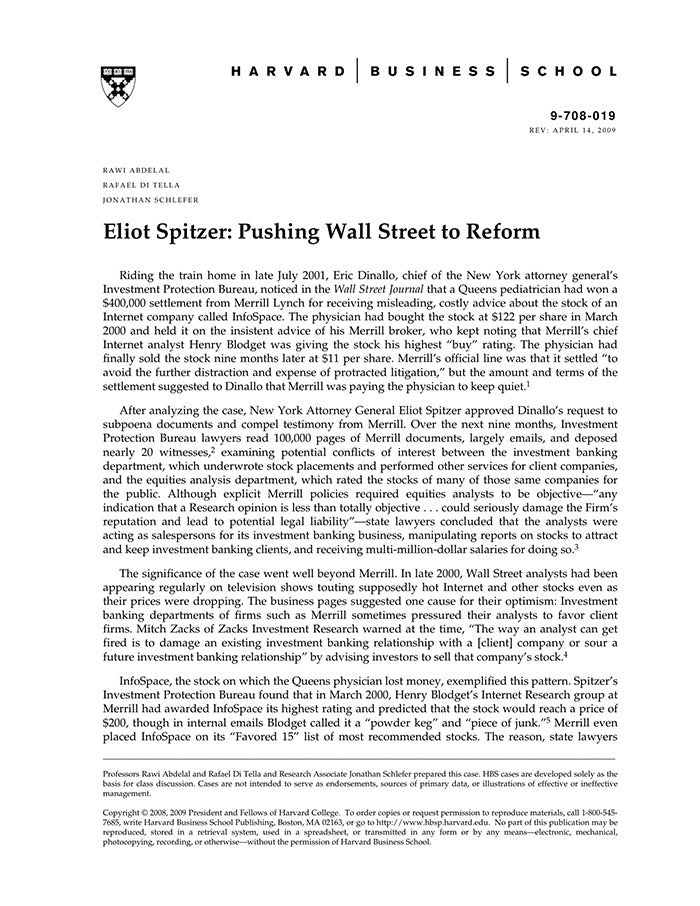Eliot Spitzer: Pushing Wall Street to Reform
受取状況を読み込めませんでした
New York State Attorney General Eliot Spitzer faced a decision about how to stop wrongdoing committed by major Wall Street firms during the Internet boom. The equities analysts of Merrill Lynch and other Wall Street firms were charged with objectively advising retail investors whether to buy or sell publicly traded stock. The analysts had rated some stock a strong buy, while at the same time disparaging it in Internet emails as "a piece of junk" or a "powder keg." Spitzer concluded that the analysts sometimes issued such buy ratings on stock of companies because of a conflict of interest: the Wall Street firms the analysts worked for were making handsome fees for underwriting the companies' stock offerings and providing other services. The usual procedure when an enforcement agency such as the Federal Securities and Exchange Commission (SEC) discovered such a situation would be to complete its investigation and negotiate a resolution privately with the financial firm. If it could not resolve the matter, the agency would formally file suit against the firm in court. This option was open to Spitzer, but the 1921 New York statue gave him an alternative. Even before filing suit in court--and while continuing to investigate the firm further--he could broadcast his findings to warn the public and brand the firm with wrongdoing. This case investigates the decision Spitzer made, and its long-term implications for U.S. financial regulation and financial industries.
【書誌情報】
ページ数:26ページ
サイズ:A4
商品番号:HBSP-708019
発行日:2008/3/4
登録日:2009/12/24


